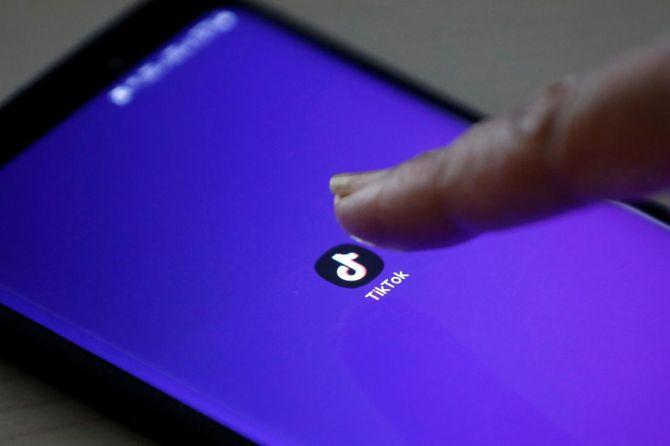According to industry insiders, India has 400 million smartphones and is the world’s fastest-growing app market. So the addition or deletion of apps impacts the global valuations of these platforms.
“Based on calls given by various local organisations to delete Chinese Apps, there will be an impact,” said Blaise Fernandes, director at foreign policy think tank Gateway House. “All of them eventually will go the IPO (initial public offering) route so there would be economic impact also.”

The border stand-off between India and China has sparked a campaign here that is gaining momentum to boycott Chinese products, including applications like videoconferencing app Zoom, short-video app TikTok, UC Browser, file-sharing app SHAREit, and gaming app PUBG.
This comes weeks after the app “Remove Chinese Apps” tried to tap into a similar sentiment amidst escalating tensions at the border.
Besides the boycott campaign, Indian intelligence agencies have red-flagged over 50 China-linked apps as posing a threat to national security. There are concerns that these apps aren’t safe and might be extracting a large amount of data.
Experts said the government can block apps that are perceived to pose a threat to national security. “If they (apps) are fomenting sectarian violence or creating panic by spreading wrong information or propaganda that can incite a rebellion in border states, the government is well within its rights to impose section 69A of the IT Act,” said Blaise Fernandes, director at foreign policy think tank Gateway House.
According to industry insiders, India has 400 million smartphones and is the world’s fastest-growing app market. So the addition or deletion of apps impacts the global valuations of these platforms.
“Based on calls given by various local organisations to delete Chinese Apps, there will be an impact,” said Fernandes. “All of them eventually will go the IPO (initial public offering) route so there would be economic impact also.”
Divakar Vijayasarathy, founder and managing partner at DVS Advisors LLP, said, “Since China enjoys an abnormally high trade surplus of $60 billion, boycotting Chinese products would have the maximum impact if it fructifies.”
However, other experts said it was important to understand that a total boycott is impractical. According to Salman Waris, managing partner at TechLegis Advocates & Solicitors, the boycott will have some impact on the number of users of these apps in India in the “short term”.
“However it will be a bit (ignorant) to expect it will have any (repercussions) from a geopolitical perspective,” said Waris. “Companies and countries don’t play the short-term.”
This is because China’s investments into India’s tech start-up space have been over $8 billion over the last five years. The country has been one of the largest recipients of Chinese investments. “China's digital and mobile dominance runs deep into the Indian economy,” said Waris.
Despite the geopolitical issues between India and China, there is a robust $87 billion in trade between the two countries.
TikTok, the Chinese short-video app earned revenue of around Rs 25 crore in the October-December 2019 quarter and was targeting Rs 100 crore revenue in India by September 2020.
Prasanth Sugathan, legal director at Software Freedom Law Center, India (SFLC) sees the boycott as a knee-jerk reaction. “In the short term there could be some impact for the apps, but people would go back if these apps are perceived to be of value,” said Sugathan. “With the kind of investments Chinese companies have made in the telecom space, this may not prevail for long.”
However, Sugathan said apps handling sensitive personal data, including financial information, would require greater scrutiny if the servers are located in China. Tripti Jain, lawyer and researcher at the Internet Democracy Project, said as long as the country doesn’t have a comprehensive personal data protection framework, fundamental right of privacy and national security both are at risk.
“Most social media apps and online applications are built on the model of surveillance capitalism, and in the absence of a data protection regime, the threat of breach of privacy and national security exists,” said Jain.












 © 2025
© 2025